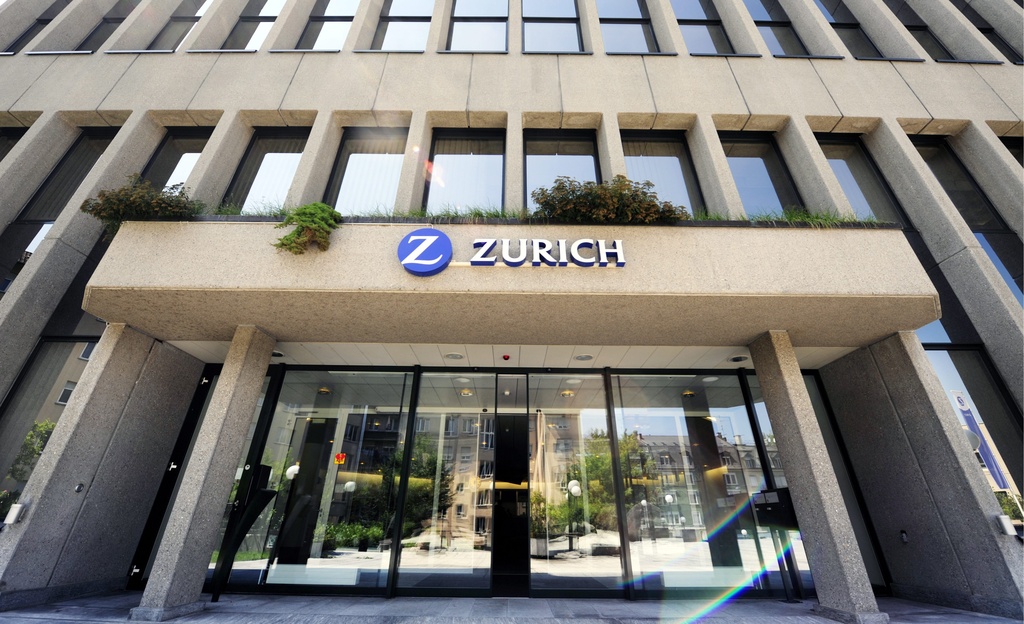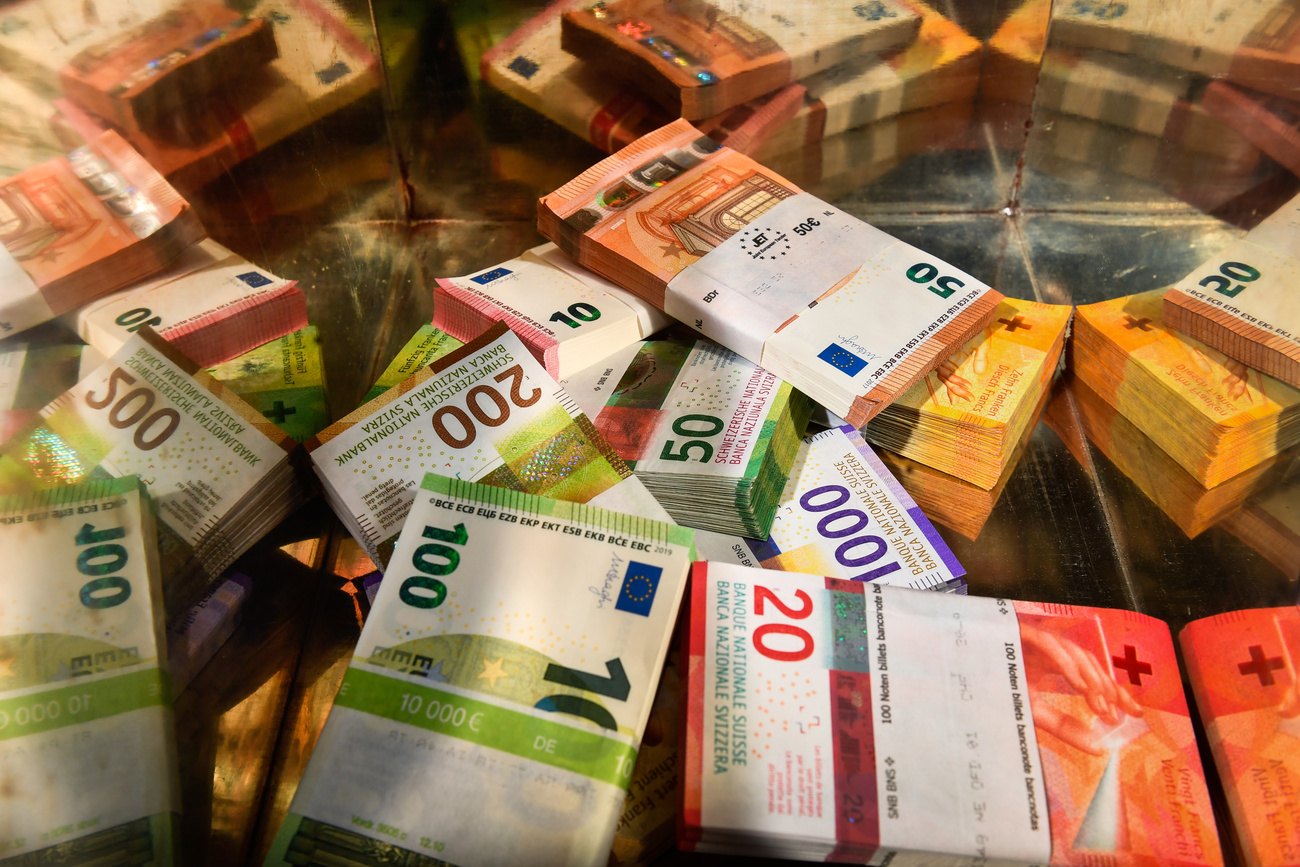United States market proves a legal minefield

Some of Switzerland’s largest companies have paid hundreds of millions of dollars in penalties to the US over the past two years to continue to do business there.
Pharmaceutical company Novartis paid $422 million (SFr420 million) in September, the same month that engineering concern ABB handed over $58.3 million.
Zurich Financial Services paid $455 million in October, which means that Swiss bank UBS is not alone in losing out on the US market.
UBS was handed a penalty of $780 million in a tax evasion case and the list of Swiss enterprises penalised in the US in recent months is as long as your arm (see box).
The penalties – or rather the arrangements reached by the companies to cut short legal battles – are extremely costly. Whether it’s a question of cartel accords, corruption in foreign countries, illegal marketing of medicines or violation of embargos, the bills across the Atlantic add up to tens if not hundreds of millions.
“Swiss companies are not the target of a witch-hunt,” said Peter Widmer, a lawyer with the Homburger law firm, who was one of the key negotiators in the settlement worked out between the Swiss banks and the US over dormant accounts from the Holocaust era.
“Dangerous for everyone”
But he added: “At the legal level, the American market is dangerous for everyone.” It’s a minefield whether in civil or criminal cases.
“The Securities and Exchange Commission [the financial market watchdog] has enormous power. I do not know of any other supervisory body that has such room for manoeuvre,” said Jean-Marc Carnicé from the BCCC law firm, who practises at the bar in Geneva and New York.
The experts also have the power to bring companies to their knees, in particular with the class action procedure which brings the plaintiffs together to increase pressure.
But if Zurich Financial Services must pay up to $455 million in a case of management fees, it is because it had to reach an accord with 13 million people who felt they had been damaged. That will give each person the modest sum of $35.
In Swiss law there is no such large-scale compensation, nor extravagant penalties (with the exception of competition, see details on the right).
“Not lax”
“Swiss justice is not lax, it just simply does not have the same tools [as the US]. It has only been possible to attack a company at the criminal level since 2003. And according to article 102 of the [Swiss] penal code the maximum fine is SFr5 million,” Carnicé said.
“American justice can be severe because companies, whatever happens, need to be present in the United States,” he added.
“The Swiss market does not have the same attractiveness. If Switzerland imposed fines of 500 million on multinationals, they would simply look elsewhere [to do business].”
In this situation, Washington continues to turn the screw. “Over the past two years, we have seen a growing number of very high penalties,” explained Harry First, a professor of law at New York University and an expert on economic crime.
“It’s the result of a definite trend since the 1990s: the courts are becoming more interested in economic crime.”
Corruption of officials
ABB recently experienced this. Accused of having paid kickbacks to Mexico and Iraq to gain market access, the Swiss-based firm was forced to pay out $58.3 million. The company fell under the Foreign Corrupt Practices Act (FCPA), a law that deals with the corruption of officials in foreign countries.
Small and medium-sized countries have also not been spared. The American-Swiss company Maxwell, which makes electrical equipment, expects to have to pay $6.35 million in a case of alleged corruption in China. Its annual turnover was $101 million in 2009.
“The FCPA has been in force since 1977. But for a long time the law was not applied sufficiently,” First said. “It should not be forgotten that there is a certain political factor into how assiduously the cases are treated.”
In the case of ABB, the company signed the cheque before the end of the proceedings. In the United States, settlements or friendly agreements resolve many cases. As for example in the case of litigation between the US and UBS which had Switzerland holding its breath for months.
Across the Atlantic, the costs of justice are colossal and the proceedings long. Zurich Financial Services has to pay $90 million in fees to its lawyers in the case settled last month and which opened in 2003.
“The outcome is always uncertain even when companies are convinced they are in the right,” Widmer said.
The temptation is therefore big to accept arrangements, even though they always seem like admissions of guilt.
$780 million: On February 18, 2009, UBS reached an accord with US justice authorities to end the greatest tax evasion case in Swiss history.
$536 million: On December 16, 2009, Credit Suisse received the highest fine ever handed down for the violation of an economic embargo. The fine was for having had dealings with Iran, Libya and Sudan.
$455 million: On October 7, 2010, Zurich Financial Services said it would pay this amount to people insured by its Farmers subsidiary in a settlement of a suit involving management fees.
$422 million: On September 30, 2010, Pharmaceuticals group Novartis announced it would pay the sum after pleading guilty to misbranding the epilepsy drug Trileptal.
$354 million: On March 24, 2009, a New York court ruled that the Credit Suisse Group had to pay this amount to STMicroelectronics in a case concerning unauthorised investments in auction-rate securities.
$250 million: Novartis was ordered to pay this amount in punitive damages after a federal jury in New York found on May 19, 2010 that the company consistently discriminated against 5,600 of its female employees. According to Bloomberg data, the ruling marked the largest-ever employment discrimination verdict.
$58.3 million: ABB announced settlements on October 29, 2010 of anti-bribery investigations to resolve charges arising from payments related to projects in Mexico. The settlement also covered contracts carried out by ABB in the United Nations Oil for Food programme in Iraq from 2000-2004.
$22 million: On September 30, 2010, Logistics groups Panalpina and Kühne + Nagel were fined $12 million and $10 million respectively for practising a cartel-like agreement.
In Switzerland and Europe, only hindering competition is dealt with as severely as other economic offences are in the US.
The Federal Competition Commission ordered telecoms operator Swisscom to pay SFr333 million for abusing its dominant position. It has still not been paid.
(Translated from French by Robert Brookes)

In compliance with the JTI standards
More: SWI swissinfo.ch certified by the Journalism Trust Initiative












You can find an overview of ongoing debates with our journalists here . Please join us!
If you want to start a conversation about a topic raised in this article or want to report factual errors, email us at english@swissinfo.ch.